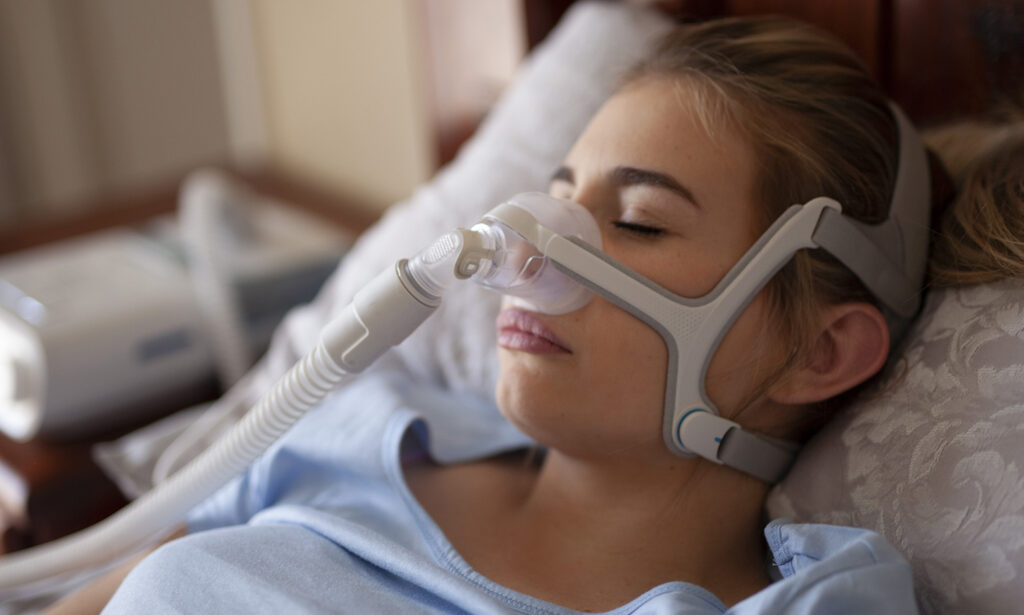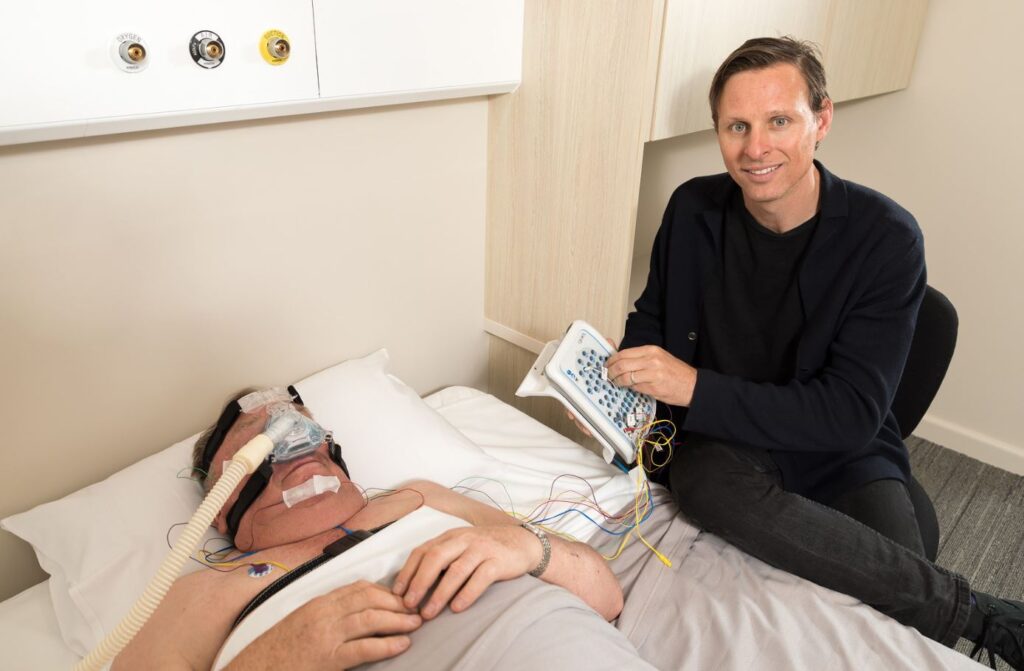In today’s fast-paced world, getting sound sleep has become a luxury for many. We often sacrifice our sleep to meet the demands of work, family, and personal obligations. But what if I told you that sound sleep is not just a luxury, but a necessity for our overall health and well-being?
Understanding the Importance of Sound Sleep
Sound sleep plays a crucial role in our physical and mental health. During sleep, our body repairs itself, consolidates memories, and regulates various bodily functions. Without adequate sleep, we are more prone to health problems such as obesity, heart disease, and diabetes. Lack of sleep can also affect our cognitive abilities, mood, and productivity levels.
The Science of Sleep
Sleep is a complex process that involves multiple stages and for this you can perform sleep apnea test at home Australia. These stages include non-REM (rapid eye movement) sleep and REM sleep. Each stage has its unique characteristics and serves different functions in maintaining our health. Non-REM sleep is primarily responsible for physical restoration, while REM sleep is essential for cognitive development and emotional regulation.
Health Implications of Poor Sleep
When we consistently experience poor sleep, it can have severe consequences on our health. Chronic sleep deprivation has been linked to an increased risk of obesity, depression, anxiety, and cardiovascular conditions. It can also weaken our immune system, making us more susceptible to illnesses.
Did you know that sleep deprivation can also impact our ability to learn and retain information? During sleep, our brain processes and consolidates memories, helping us retain what we have learned throughout the day. Without enough sleep, our ability to learn and remember can be significantly impaired.

Furthermore, inadequate sleep can have a detrimental effect on our mood and emotional well-being. When we are sleep-deprived, we are more likely to experience irritability, mood swings, and difficulty managing stress. This can not only affect our personal relationships but also hinder our overall quality of life.
In addition to the immediate effects on our health and well-being, chronic sleep deprivation can also contribute to the development of long-term health conditions. Research has shown that individuals who consistently lack sleep are at a higher risk of developing chronic conditions such as diabetes, heart disease, and even certain types of cancer.
It is important to note that the quality of sleep is just as crucial as the quantity. Even if we manage to get the recommended number of hours of sleep, if the sleep is fragmented or of poor quality, we may still experience the negative effects of sleep deprivation. Factors such as noise, light, temperature, and comfort can all impact the quality of our sleep, and it is essential to create a sleep environment that promotes restful and uninterrupted sleep.
In conclusion, sound sleep is not just a luxury but a necessity for our overall health and well-being. It is a vital process that allows our body to rejuvenate, repair, and function optimally. By prioritizing and ensuring we get enough quality sleep, we can improve our physical and mental health, enhance our cognitive abilities, and lead a more productive and fulfilling life.
The Mystery of Sleep Disorders
While some individuals struggle to achieve sound sleep due to hectic schedules and lifestyle factors, others face more persistent challenges known as sleep disorders.
Sleep disorders are a complex and fascinating field of study, with researchers constantly uncovering new insights into the causes and treatments of these conditions. Understanding the different types of sleep disorders is crucial in order to provide effective interventions and improve the quality of life for those affected.
Common Types of Sleep Disorders
There are various types of sleep disorders that can disrupt our sleep patterns. Each disorder has its own unique characteristics and impacts individuals in different ways.
Insomnia, one of the most common sleep disorders, is characterized by difficulty falling asleep or staying asleep. It can be caused by a variety of factors, such as stress, anxiety, or certain medications. Sleep apnea, on the other hand, is a condition where breathing is repeatedly interrupted during sleep, leading to fragmented and poor-quality sleep. This disorder is often accompanied by loud snoring and excessive daytime sleepiness.
Restless leg syndrome is another sleep disorder that causes an irresistible urge to move the legs, usually accompanied by uncomfortable sensations. This can make it difficult for individuals to relax and fall asleep. Narcolepsy, on the other hand, is a neurological disorder that affects the brain’s ability to regulate sleep-wake cycles. People with narcolepsy experience excessive daytime sleepiness and may suddenly fall asleep during the day, regardless of the circumstances.
Symptoms and Diagnosis of Sleep Disorders
Identifying sleep disorders can be challenging as their symptoms often overlap with other health conditions. However, recognizing the signs and seeking proper diagnosis is crucial for effective management and treatment.
Some common symptoms of sleep disorders include difficulty falling or staying asleep, waking up frequently during the night, and feeling tired or groggy upon waking. Excessive daytime sleepiness is another common symptom, which can significantly impact daily functioning and quality of life.

Diagnosing sleep disorders often involves a combination of medical history assessment, physical examination, and specialized sleep tests. Polysomnography, a comprehensive sleep study, is commonly used to monitor brain activity, eye movements, heart rate, and breathing patterns during sleep. Multiple sleep latency tests, on the other hand, measure how quickly an individual falls asleep during the day, providing valuable information about daytime sleepiness.
By accurately diagnosing sleep disorders, healthcare professionals can develop personalized treatment plans that address the underlying causes and symptoms. Treatment options may include lifestyle modifications, such as improving sleep hygiene and managing stress, as well as medical interventions like medication or the use of continuous positive airway pressure (CPAP) devices for sleep apnea.
As research continues to shed light on the mysteries of sleep disorders, it is becoming increasingly clear that these conditions are not simply inconveniences, but rather complex medical conditions that require specialized care. By raising awareness and promoting further research, we can hope to improve the understanding and treatment of sleep disorders, ultimately helping individuals achieve restful and rejuvenating sleep.
CPAP Machines: A Revolutionary Sleep Solution
One of the most effective treatments for sleep apnea, a common sleep disorder, is the use of Continuous Positive Airway Pressure (CPAP) machines.
CPAP machines have revolutionized the way sleep apnea is treated, providing individuals with a non-invasive and highly effective solution. These machines work by delivering a constant flow of air pressure to keep the airways open during sleep. By preventing the collapse of the airway, CPAP machines ensure uninterrupted breathing and improve oxygen levels. This allows individuals with sleep apnea to experience restful sleep and wake up refreshed, ready to take on the day.
How Does a CPAP Machine Work?
A CPAP machine consists of three main components: a motor, a mask, and a hose. The motor generates the air pressure, which is then delivered to the user through the mask and hose. The mask is designed to fit securely over the nose and/or mouth, creating a seal to prevent air leakage. The hose connects the mask to the machine, allowing the pressurized air to flow directly into the airway.
When a person with sleep apnea wears a CPAP mask and turns on the machine, the air pressure gently pushes against the walls of the airway, keeping it open. This prevents the collapse of the airway, which is the main cause of sleep apnea. The continuous flow of pressurized air ensures that the individual can breathe freely throughout the night, without any interruptions.
The Benefits of Using CPAP Machines
The use of CPAP machines offers numerous benefits beyond treating sleep apnea. One of the most noticeable benefits is the reduction in snoring. Snoring is a common symptom of sleep apnea, caused by the partial obstruction of the airway. By keeping the airway open, CPAP machines effectively eliminate snoring, providing relief not only to the individual using the machine but also to their sleep partner.
In addition to reducing snoring, CPAP therapy can alleviate symptoms of daytime sleepiness. Sleep apnea often leads to excessive daytime sleepiness, as the interruptions in breathing during the night prevent individuals from achieving deep, restorative sleep. By ensuring uninterrupted breathing throughout the night, CPAP machines promote better sleep quality, leading to increased daytime alertness and improved cognitive function.
Furthermore, the use of CPAP machines can lower the risk of associated health conditions such as hypertension and heart disease. Sleep apnea has been linked to an increased risk of high blood pressure, heart attacks, and strokes. By effectively treating sleep apnea, CPAP therapy helps to regulate blood pressure and reduce the strain on the cardiovascular system, thus reducing the risk of these serious health conditions.
Overall, CPAP therapy has been shown to improve the overall quality of life for individuals with sleep apnea. By ensuring restful sleep and alleviating symptoms, CPAP machines restore a sense of well-being and vitality. With the advancements in technology, CPAP machines have become more comfortable, quieter, and easier to use, making them a convenient and effective solution for sleep apnea sufferers.

Overcoming Challenges with CPAP Machines
While CPAP machines are highly effective, some individuals may face challenges during the initial stages of therapy.
Common Concerns and Solutions
One common concern is discomfort experienced while wearing the CPAP mask. However, with the help of a knowledgeable sleep specialist, proper mask fitting, and adjustments in mask style, these concerns can usually be resolved. Regular maintenance and cleaning of the CPAP machine are also vital in ensuring its optimal functioning.
Tips for Adapting to a CPAP Machine
Adapting to a CPAP machine can take time and patience. It is essential to establish a consistent routine, gradually increase usage time, and seek support from healthcare professionals or support groups. By persevering through the initial adjustment period, individuals can reap the long-term benefits of CPAP therapy.
The Future of Sleep Solutions
As technology continues to advance, we can expect exciting developments in sleep aid devices and techniques.
Technological Advancements in Sleep Aid Devices
Advancements such as wearable sleep trackers, smart mattresses, and personalized sleep apps are revolutionizing the way we monitor and improve our sleep quality. These innovations provide valuable insights into our sleep patterns and offer tailored recommendations for better sleep hygiene.
The Role of Lifestyle Changes in Enhancing Sleep Quality
Beyond relying solely on technology, making specific lifestyle changes can significantly enhance our sleep quality. This includes establishing a consistent sleep schedule, creating a sleep-friendly environment, practicing relaxation techniques, and adopting healthy habits such as regular exercise and a balanced diet.
Unlocking the secrets of sound sleep is an ongoing journey that requires a comprehensive approach. By understanding the importance of sleep, recognizing sleep disorders, utilizing revolutionary sleep solutions like CPAP machines, and embracing technological advancements and lifestyle changes, we can all strive towards achieving the restful sleep we deserve. So, prioritize your sleep and unlock the benefits of sound slumber!
See Also: The Ultimate Guide to CPAP Masks for a Restful Night

